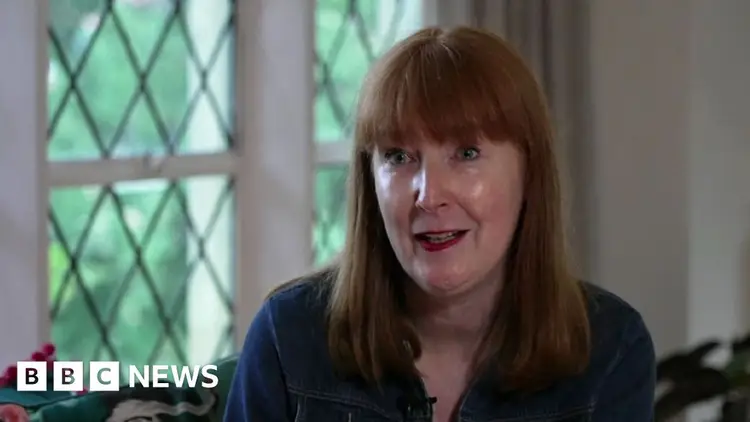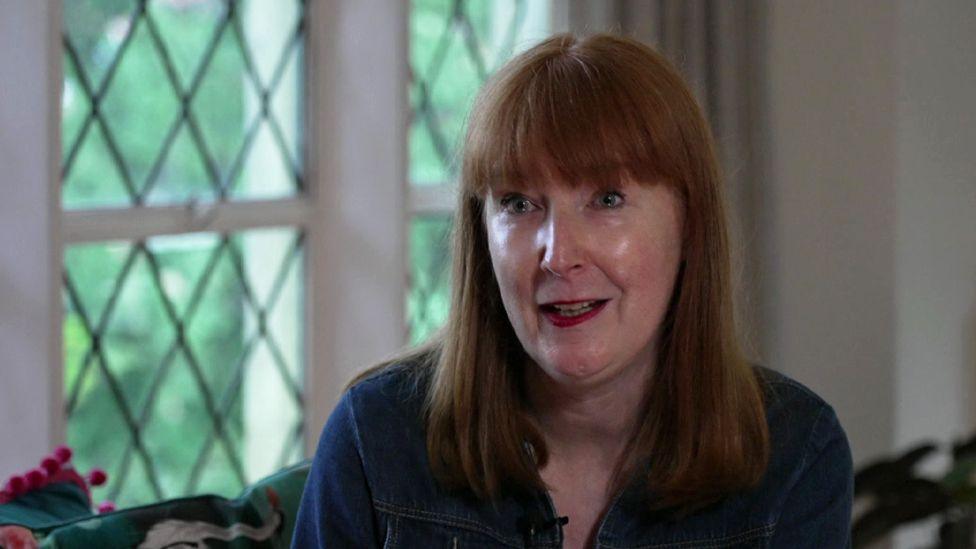Assisted dying bill: Terminally ill people react after MPs vote

"Terminally Ill React To Assisted Dying Bill"
Elise Burns believes that the approval of the bill will give options to those who are facing terminal illnesses and suffering, similar to what she's experiencing.

Individuals with terminal illnesses are one step nearer to having the option to decide when they wish to end their lives, following a vote by MPs in favor of a suggested legal reform.
Individuals who have a life expectancy of six months or less will be permitted to choose assisted dying, but their request must receive approval from two physicians and a judge.
This is one of the most important and delicate issues that MPs have voted on in recent years, but it still has to pass more voting stages before it can be put into action.
Two weeks ago, BBC News conducted interviews with two individuals who are terminally ill to discuss their perspectives on the assisted dying legislation. We followed up with them after the vote that took place on Friday afternoon.
"I'm incredibly thrilled and filled with joy," expresses Elise Burns, who endures ongoing pain due to her cancer.
"This legislation will prevent countless agonizing and tragic deaths, along with sparing families and friends from witnessing their loved ones suffer."
She was observing the discussion about assisted dying from the public viewing area in the House of Commons, having become involved in the assisted dying campaign a few months prior.
Elise, who is 50 years old, is facing a terminal illness as her breast cancer has advanced to other areas of her body, including her bones. Due to the damage caused by cancerous cells, her femur had to be replaced with a metal rod.
Understanding Assisted Dying: Insights And Updates
"I'm completely taken aback," says Elise. "I was definitely hoping for a positive outcome, but I was also ready for things to go poorly." She had been present for the debate and expected that MPs might choose not to support the bill.
Nik Ward, who lives with motor neurone disease and is against altering the legislation on assisted dying, expressed his feelings by saying, "I must admit I'm somewhat let down."
He viewed the discussion and the voting process from the comfort of his home.
"However, it was emphasized multiple times during the discussion that there has been minimal progress in palliative care since the last vote almost a decade ago."
Often referred to as end-of-life care, this support is designed for individuals who are in the last few months or years of their lives.
Care can be provided at home, in a nursing facility, a hospice, or a hospital, based on what the patient needs and what they prefer.
Critics of the assisted dying legislation argue that more financial support is necessary for this service so that individuals with terminal illnesses can truly choose between dying of natural causes or opting for an earlier death.
"There hasn't been a lot of conversation about this topic, and perhaps in the years leading up to the [assisted dying] bill being put into action, there will be an opportunity for a thorough evaluation," Nik continues.
Nik Ward expresses his disappointment over the bill's approval and is concerned about the potential impact it may have on at-risk individuals.
For the last five years, the 53-year-old has been informed that his illness is terminal. He understands that his life could end at any moment, whether from choking on food or even on saliva.
He is also worried that the bill could lead terminally ill individuals, who are already dealing with the intense emotions of approaching death, to choose to end their lives prematurely for reasons they see as honorable.
"I'm concerned about the individuals who are genuinely trying to do the right thing and live with integrity. It's those good people who might face issues because of this law," he explains.
He explains, "It's often the elderly woman in a nursing home who refrains from using her entire savings, wanting to leave something for her grandchildren. It's individuals like her who may consider ending their lives."
He points out that her grandchildren are probably going to cherish the remaining moments they have with her more than they would appreciate an extra £10,000 or £20,000.
Individuals often face critical decisions about life and death based on their personal beliefs and perceptions, which may not always be correct. This is largely due to the lack of open discussions surrounding the topic of death.
He believes that having more meaningful discussions could support those with terminal illnesses in maximizing their remaining time with family and friends, encouraging them to avoid taking drastic actions and choose to live longer.
Elise endures ongoing pain since cancer damaged her femur, necessitating the insertion of a metal rod in its place.
"Interestingly, I believe that the words and actions of individuals as they approach the end of their lives truly shape the essence of their existence," Nik explains.
Elise understands that her final days will be marked by growing discomfort and anguish. As her body builds a tolerance to the morphine she relies on, it will become less effective at alleviating her pain.
She is deeply afraid of suffering a painful death and feels relieved that the new law will eventually provide options for people in her situation.
"It ensures they have the opportunity for a dignified death, which is crucial," she states.
She clarifies that this will alleviate the pressure on individuals who feel they need to take their terminally ill family members overseas to end their lives, as well as the anxiety of potential legal consequences when they come back.
"It will help avoid a great deal of suffering and distress."
One aspect that caught the attention of her and Nik during the debate was the conduct of the members of Parliament.
"I believe it was generally carried out with a lot of respect from everyone involved," she remarks, adding that she hopes this will inspire others at home to discuss the topic in the same respectful way.
Nik expressed that, regardless of the voting results, he found the discussion to be enlightening and reflective of how democracy ought to function.
Nik takes it a step further, describing the experience as "truly enlightening."
He says, "It felt very mature, and I hope we see more of it. This is how a democracy ought to function."
In this instance, Elise and her fellow activists have found the democratic system to be beneficial to them.
"I'm incredibly happy for everyone," she expresses. "I've always had strong feelings about assisted dying, although I never considered that I might actually need it one day."
For her, the legislation may have arrived too late, as she is likely to pass away before it is implemented.
She is planning to utilize the assisted dying service provided by Dignitas in Switzerland before her cancer pain becomes unbearable.
In the meantime, she plans to fully enjoy her time with her family and celebrate with her fellow advocates after reaching this important milestone in the legal reform effort.
"I'm truly thankful that I, along with tens of thousands of others, will have the option for a peaceful end," she shares. "Or to make a difficult situation more bearable."
HARDtalk - The discussion on assisted dying in the UK
The UK parliament is currently looking at plans to make assisted dying legal. If approved, this would align the UK with various European nations, Canada, and several states in the US. Stephen Sackur talks with actor and advocate for disability rights, Liz Carr, about whether emphasizing a 'good death' takes attention away from the right to live a good life.



















































